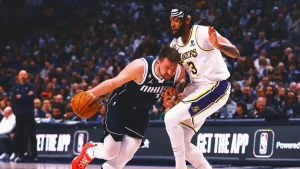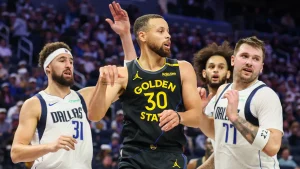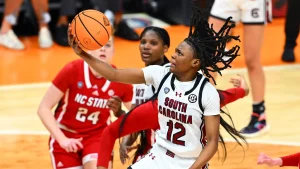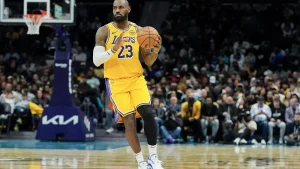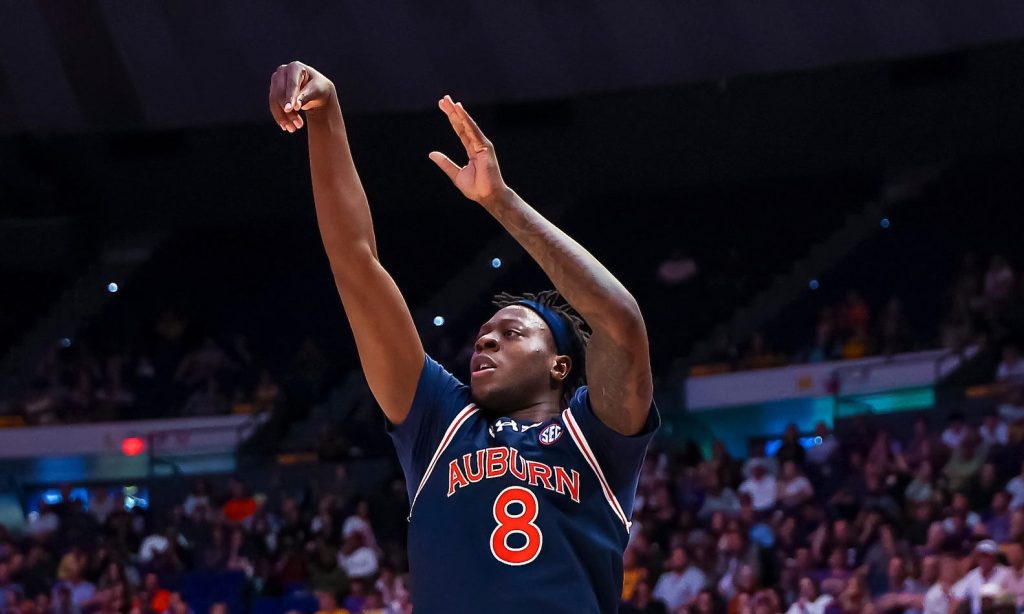
Johnnie Broome, the standout basketball player from Auburn University, has certainly caught the attention of college basketball fans with his skill set and playing style. His ability to dominate on both ends of the floor has made him a standout player in the SEC and one of the top big men in the nation. However, one thing that has perplexed many observers is why Broome doesn’t get as many foul calls as other players who display a similar level of intensity or aggression around the rim. This situation raises several interesting questions regarding the way referees view Broome’s style of play, the physicality of the college game, and how referees make their decisions.
1. The Physicality of Broome’s Playstyle
Broome plays with a unique combination of strength, skill, and finesse. As a power forward or center, he thrives in the post, often trying to establish position and take advantage of mismatches down low. When engaging with defenders, Broome is a player who isn’t afraid of contact. Whether it’s an aggressive drive to the basket or a battle for position on the block, Broome often finds himself in the middle of physical altercations. However, this physicality might work against him when it comes to drawing fouls.
In many cases, players who are known for their aggressive style around the basket might be seen as initiating contact, even when they are the ones being fouled. The more physical a player becomes, the more likely the referees are to see it as “just part of the game” or a “no-call” situation. Broome’s level of physicality might be enough to get him looked at as someone who can handle the contact, leading to a higher threshold for fouls to be called against defenders. For example, a slight push or bump from a defender might be viewed as a minor infraction if Broome is still able to finish his play or maintain his position, while the same level of contact on a more finesse-oriented player might draw a whistle.
2. The “Star Treatment” Phenomenon
Another theory regarding why Broome might not get as many foul calls could be tied to the concept of “star treatment” that sometimes occurs in basketball. This idea suggests that referees tend to call fewer fouls on star players, either because they expect them to be able to handle more contact or because they don’t want to disrupt the flow of the game with frequent whistles. In some ways, star players are given more leeway in terms of the contact they experience, while role players or less established players might get fouls called on them more readily.
For Broome, though he’s undoubtedly one of the top players on Auburn’s roster and has gained significant recognition, he is still a college basketball player in a league with numerous marquee names. This means that Broome, despite his high level of play, may not be seen in the same light as some of the other more nationally recognized players who are more frequently in the media spotlight. Consequently, he may not get the same level of leniency from referees that a player like, say, a national player of the year candidate might get, simply because Broome has not yet reached the same level of mainstream stardom in the broader basketball world.
Additionally, it’s important to note that Broome’s playing style and role as a big man might contribute to the phenomenon. Big men, in general, often struggle to get calls simply because they are involved in more physical and chaotic situations under the basket. There’s more incidental contact in the post, and referees may be less inclined to call fouls on bigs who are constantly battling for position, as it becomes difficult to discern what constitutes a foul versus just routine play in the paint.
3. Referee Bias and Subjectivity
Referees are human, and like any officials in any sport, their decisions can be influenced by a range of factors, both conscious and subconscious. While most referees strive to be objective and fair, studies have shown that biases can sometimes creep into their decision-making processes. These biases can be influenced by a player’s appearance, past performances, or even the atmosphere surrounding a particular game.
Broome’s style of play is undeniably aggressive and physical, but it’s also worth noting that his presence on the floor might not always be viewed favorably by referees, especially if they are used to seeing more finesse-oriented or less confrontational big men. The perception of Broome as a player who isn’t easily intimidated by physicality might make officials less inclined to call fouls in his favor. They may assume he’s less likely to be affected by the contact, even if it’s legitimate.
Furthermore, referees sometimes make decisions based on momentum and game context. If a game is flowing smoothly and there is no clear disruption of play, referees may opt to let a little more contact slide. Conversely, if the game is already filled with fouls or contentious moments, they may be more inclined to call fouls, regardless of the circumstances. In Broome’s case, it’s possible that referees are sometimes unwilling to call fouls in close situations, especially in tight or high-stakes moments.
4. The Changing Nature of College Basketball Officiating
The rules of basketball are in a constant state of evolution, and college basketball officiating is no exception. Over the years, there has been a trend toward allowing more physicality, particularly in the paint. With the modern emphasis on player safety and a reduction in ticky-tack fouls, referees are more likely to let physical play go uncalled, especially when players are battling for rebounds or establishing post position. Broome, as a physical presence in the paint, is likely subject to this shift in officiating standards. While the increased leniency can benefit players who prefer a more physical game, it can also result in situations where Broome, despite being fouled, isn’t rewarded with free throws or fouls being called on his opponents.
This shift also has implications for players who might be more accustomed to getting calls in different systems. If Broome plays against teams that favor a slower, more methodical offensive style that involves a lot of physical battles in the post, he may be subject to fewer foul calls because the officials are letting the game flow in a more physical manner. On the other hand, if he plays against teams with a faster, more perimeter-oriented offense, where fouls are called more frequently, Broome might see more opportunities to draw fouls.
